EDIBLE EDUCATION PROJECT
Promoting sustainable agriculture and a healthy lifestyle with nutritious food for the coming generation
Promoting sustainable agriculture and a healthy lifestyle with nutritious food for the coming generation
The KAUST School’s Edible Education Project is committed to providing a sustainable, innovative, joyful, student-led gardening education program that forges connections between students with nature, their community, and the wider world by understanding the impact our food production has on the future of the planet.
KAUST is committed to empower and inspire the young minds of Saudi Arabia with the knowledge, training, and confidence to tackle what is arguably the most significant problem of this century: “How can we sustainably feed our rapidly growing population?”
CDA Director Rod Wing
To promote sustainable agriculture as well as healthy living and nutritious food, the Plant Science Program, together with the KAUST School, is piloting a program entitled the “Edible School Garden Project (ESGP)” based on a program started by Alice Waters in Berkeley, California. The ESGP is designed to integrate sustainable agricultural practices, healthy food habits, and the study of plant science (e.g. from culture, history, math, chemistry, physics, biology, and engineering) into K-12 curricula. The long-term aim of the program is to drive a paradigm shift around the food system in the Kingdom of Saudi Arabia, which engages all K-12 students and incorporates the full life cycle of food from planting, harvesting, cooking, and composting.
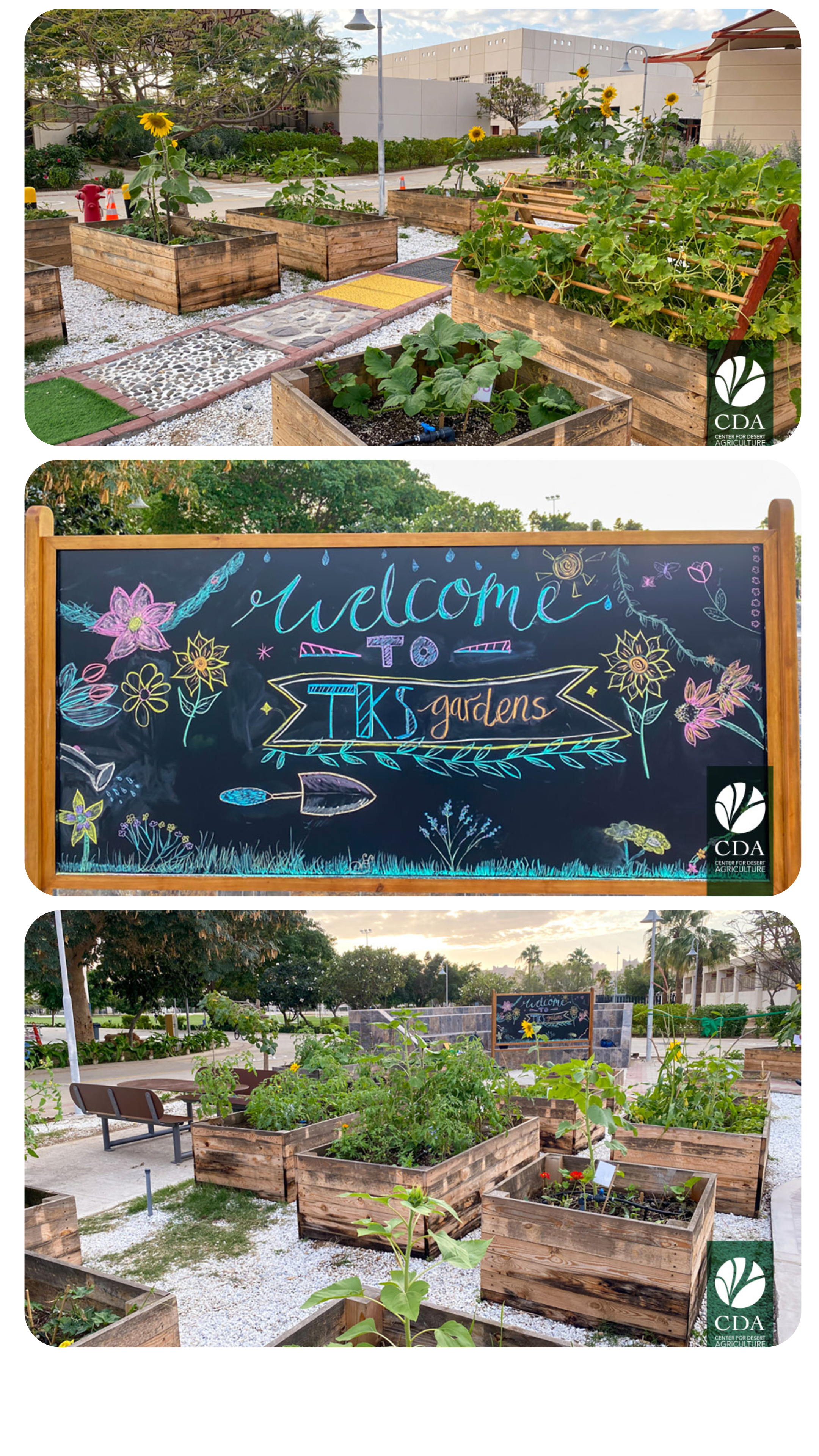
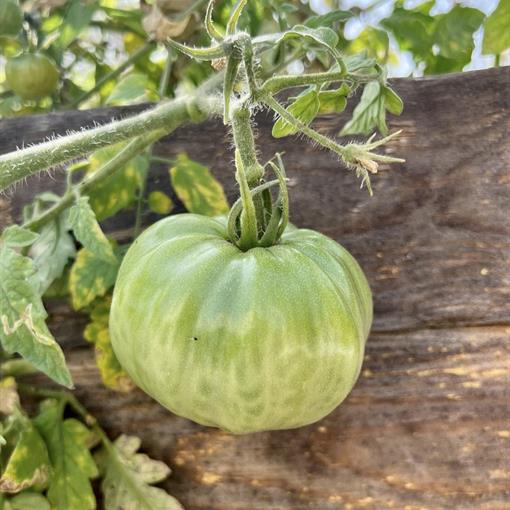
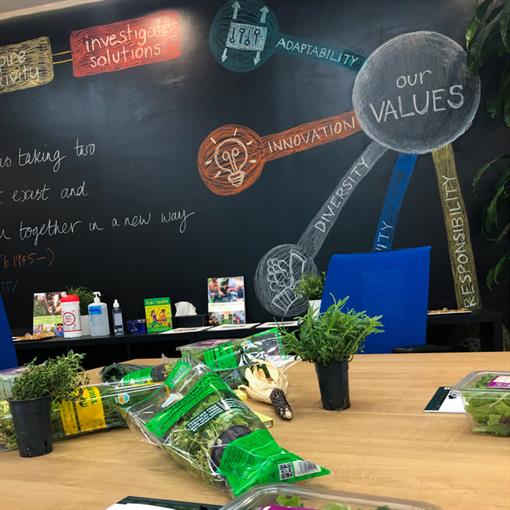
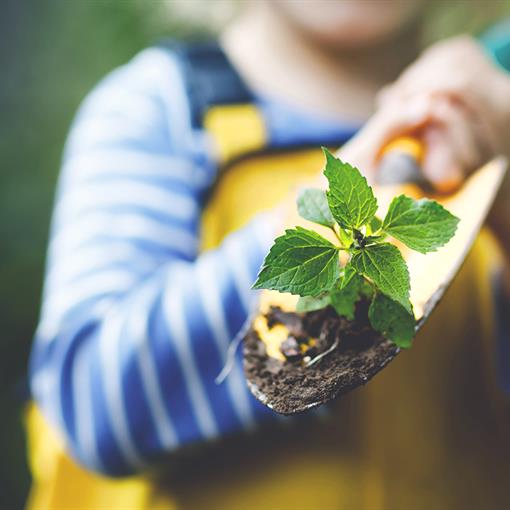
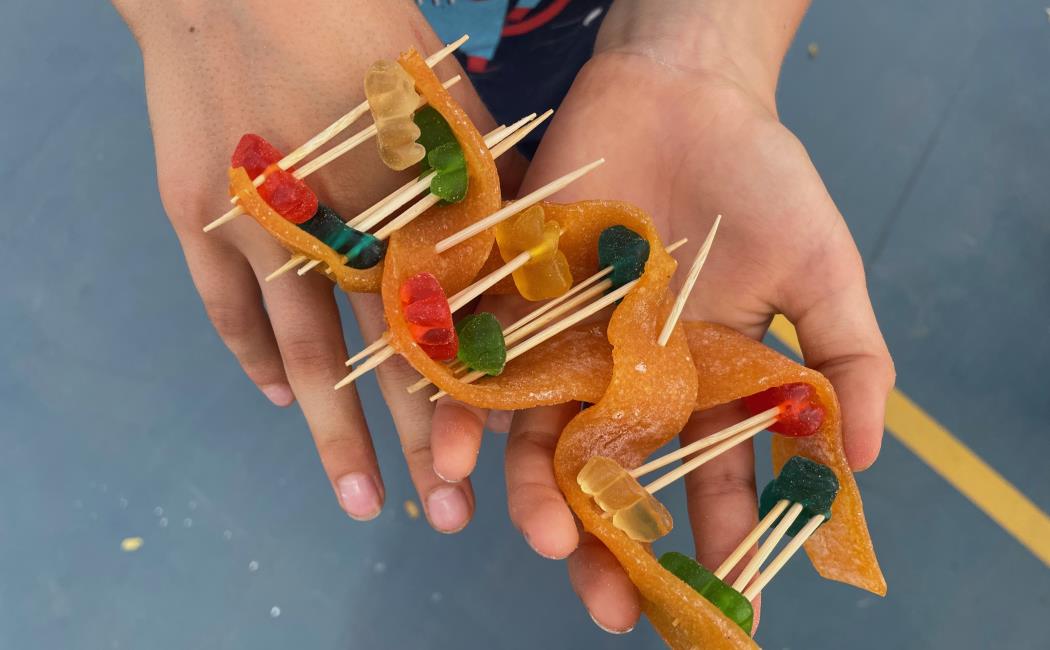
18 September, 2023
By Jovana Cvorovic
The world's population is on a rapid trajectory, set to reach nine billion people within the next two decades. This exponential growth raises numerous critical questions, foremost among them being how we can ensure sustainable food production to feed the ever-increasing population. This pressing concern has captivated the minds of scientists, policymakers and experts from various fields and led them to search for innovative solutions. Consensus prevails that adopting a 'multilayer approach' is imperative, emphasizing the significance of commencing at the grassroots level: fostering awareness among younger generations, and enlightening them about the global challenges we face.
Promoting a sustainable future by actively engaging young individuals is a common objective shared by The Center for Desert Agriculture (CDA) and The KAUST School (TKS), whose fruitful collaboration has resulted in numerous exciting projects. Among the flagship ones is the Plant Science Family Night (PSFN), designed with the aim of introducing children to the world of plant science, showcasing its applications, and highlighting its significance for humankind. This remarkable event, organised by Dalia Alshahrani, CDA outreach specialist and project coordinator, was inaugurated on March 6, 2023. It brought together almost one thousand participants, including students from TKS and their families, CDA researchers, TKS teachers, and members of the local community. At the heart of the event were hands-on activities that sparked curiosity and nurtured a love for science. Children were presented with 40 captivating stations, each offering diverse content. From exploring nutrition, food preparation and tasting, to delving into the realms of genetics and plant biology, every station engaged young minds with entertaining and educational experiences. The event breathed life into the subject matter, allowing children to extract DNA, compare different seeds, recognize plants, learn about pollination, etc. — an immersive experience that covered everything from the growth and reproduction of plants to their intricate interactions with animals and use in nutrition. By igniting genuine enthusiasm, evoking curiosity, encouraging questions, and emphasizing hands-on activities, the PSFN fostered a vibrant and playful learning environment which lays the foundation for future scientific exploration.
The KAUST event was graced by the presence of HH Prince Faisal bin Abdul Rahman bin Farhan Al Saud, the esteemed founder of the Liajlehum initiative, "Plant a Tree for Them." As a special recognition for their participation and engagement, all children who successfully completed the PSFN passport challenge were bestowed with a prestigious Liajlehum certificate. In addition, a tree will be planted in their honor, with each tree bearing the child's name. This heartfelt gesture aims to instill a sense of pride and responsibility in the young participants, while contributing to the noble cause of environmental conservation.
The inspiration for the Plant Science Family Night was drawn from the success of Plant Science Night - an event originally initiated by the CDA Director, Prof. Rod Wing back in 2010 in his daughters’ school Ventana Vista Elementary School in Tucson, Arizona. The program ran successfully for a decade, educating and motivating children to engage with plant science. Driven by his passion for plants and desire to inspire children, Prof. Wing brought this concept to Saudi Arabia, where, he hopes, it will now take root and flourish.
The Plant Science Family Night stands as a testament to the power of engaging young minds in the wonders of science. Through this remarkable event, the CDA aspires to pave the way for similar initiatives not only within the KAUST community but also throughout the Kingdom. By nurturing a deeper connection between young individuals and the environment, and by empowering them to take action, the CDA envisions a future where sustainable practices and initiatives become the norm, encouraging a harmonious relationship between humanity and the natural world.